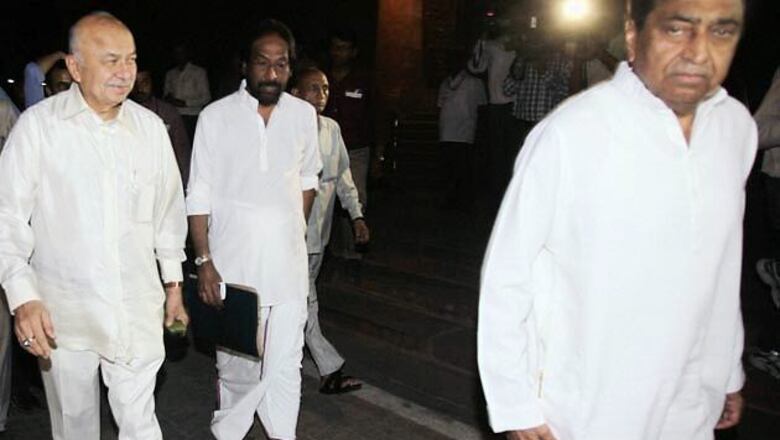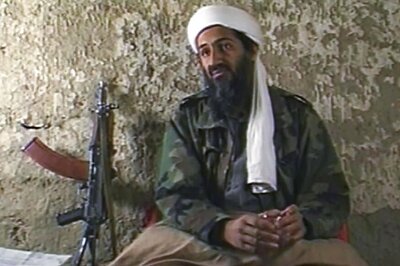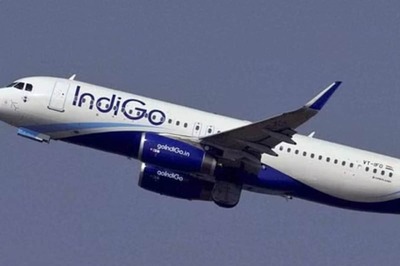
views
New Delhi: A day after the Dravida Munnetra Kazhagam (DMK) pulled out of the United Progressive Alliance (UPA), the government on Wednesday scrambled to bring a consensus on the Sri Lankan Tamils issue but all efforts were in vain as the all-party meeting called by Speaker Meira Kumar ended in complete disagreement. At the 90-minute meeting, where most of the parties opposed the idea of Indian Parliament adopting a resolution against Sri Lanka, the DMK and the AIADMK were the only parties which favoured the move, said sources.
No consensus at all-party meeting
The Samajwadi Party, which supports the government from outside, said Sri Lanka is a friendly country and the Indian Parliament should not pass a resolution against it. "We are with Lankan Tamils but there is no need for a resolution by Parliament as Sri Lanka is the only country which stood with us during the 1962 China war," said SP leader Rewati Raman Singh.
"We have recently rejected Pakistan Parliament resolution on Afzal Guru. How can we do the same to a friendly neighbour. At the UNHCR, India should do what is in the national interest and interest of Tamils of Lanka," he added while emerging from the meeting convened by Parliamentary Affairs Minister Kamal Nath.
Janata Dal-United (JD-U) chief Sharad Yadav also echoed similar views at the meeting, where he reportedly questioned the logic of adopting a resolution against a sovereign nation. He is believed to have told the meeting that if India has to provide relief to Sri Lankan Tamils, it should do so without antagonising the host country, sources said.
After the meeting, Kamal Nath admitted that it ended "inconclusive". He said the meeting had been called to end the impasse in Parliament over the Lankan Tamil issue but "it has not produced any results".
Leader of Opposition Sushma Swaraj, however, questioned why all parties had been called for the meeting to discuss an issue which strictly is between the government and the DMK. "The impasse is between government and DMK and it is for them to sit together and resolve it," she said. Communist Party of India (CPI) leader Gurudas Dasgupta was of the similar view.
Has DMK's pullout affected government?
The government has refused to be on the back foot despite DMK's withdrawal and has asserted that it was "absolutely stable" and "not a lame duck". While the Bahujan Samaj Party (BSP) has promised to stand by the UPA, the SP is yet to clear its position. The Mulayam Singh Yadav-led SP has 22 members in Lok Sabha while Mayawati's BSP has 21.
"The government is neither lame, nor duck. It is not lame duck. We are absolutely, absolutely stable. If there is any test, it is on the floor of the House. But no political party has come out to challenge our majority," Nath said at a press conference.
The DMK had withdrawn from the UPA on Tuesday demanding the government should get a resolution passed by Parliament against Sri Lanka. Following the pullout of their party, five Union ministers of the DMK - MK Alagiri, SS Palanimackam, S Gandhiselvan, S Jagatrakshakan and D Napolean - submitted their resignations to Prime Minister Manmohan Singh on Wednesday, which were accepted and later sent to President Pranab Mukherjee.
Meanwhile, sources told CNN-IBN that the Bharatiya Janata Party (BJP) was undecided on the trust vote but the Trinamool Congress could ask for a no-confidence motion against the government in Parliament on Thursday.
Conflicting reports have been coming in over Trinamool Congress's position on the issue. Earlier in the day, party president Mamata Banerjee, in a Facebook post, expressed support to the government saying that while her party was "deeply concerned about the atrocities meted out to a section of Tamil population in a foreign country", "on issue of external affairs or foreign policy our party never interferes...We leave it to the central government to decide on the issue".
India to move amendments to Sri Lanka resolution in UNHCR
Signalling that it will take a tough position on the Sri Lankan Tamil issue at the United Nations, the government said it will move amendments to the resolution to send a "resolute message" to that country on alleged human rights violations of Tamils. The indication was given by Finance Minister P Chidambaram at a press conference as he rubbished as absolute "canard" media reports that India was working to dilute the strongly-worded resolution piloted by the US.
"India's position has always been and remains that the UNHRC should adopt a strong resolution that would send a resolute message to Sri Lanka and goad Sri Lanka to accept an independent and credible investigation," Chidambaram said. He said the government had begun the process of formulating amendments to the draft resolution before the UNHRC.
Though he did not give any details of the amendments India plans to move in Geneva, sources said the government's draft resolution on Sri Lanka calls for an "independent and credible investigation" into the alleged war crimes by the Sri Lankan army against the ethnic Tamils. The term 'genocide', however, has not been included, they added.
Protests over Sri Lankan Tamils issue continue in Tamil Nadu
In Chennai, protests were held by the advocates of Madras High Court, CPI (M) under its state unit secretary G Ramakrishnan, BJP's youth wing and the recently founded Aam Aadmi Party. At Marina beach, a human chain of over 1000 students was held as part of a protest call given by a student body to mobilise one crore students even as many of them in various colleges staged a sit-in and demonstrations.
Residents in many parts of the city staged a day-long fast and protests to express solidarity with Sri Lankan Tamils, besides pressing for other demands, including an independent probe for alleged war crimes against Colombo. A group of fishermen from Veerampattinam also staged a demonstration in mid sea in support of the Sri Lankan Tamils, while students of various institutions agitated at different venues in the state.
Colombo slams US-sponsored resolution at UNHRC
Sri Lanka has slammed the US-sponsored resolution at the UNHRC, which it says seeks to "discredit" and "single out" the country over alleged human rights violations, terming it as "biased and politicised". It also said the language of the resolution was borrowed from a "flawed" report by the UN High Commissioner of Human Rights Navaneetham Pillai.
Sri Lankan External Affairs Minister GL Peiris, in his communique to member states setting out his government's stand on the resolution, said, "Drawing disproportionate attention to Sri Lanka's situation and introducing resolution that seeks to discredit, single out and humiliate the country are unhelpful and counterproductive to Sri Lanka's current reconciliation process".
"Just as the Government of Sri Lanka did not recognise the last HRC resolution, it rejects the new resolution. Sri Lanka intends to request a vote when the draft resolution is taken up at the Human Rights Council on 21 March 2013," he added. Peiris said that the beneficiaries of the resolution would be none other than the divisive forces that seek to destabilise the hard won peace in Sri Lanka, he said.
(With additional information from PTI)



















Comments
0 comment